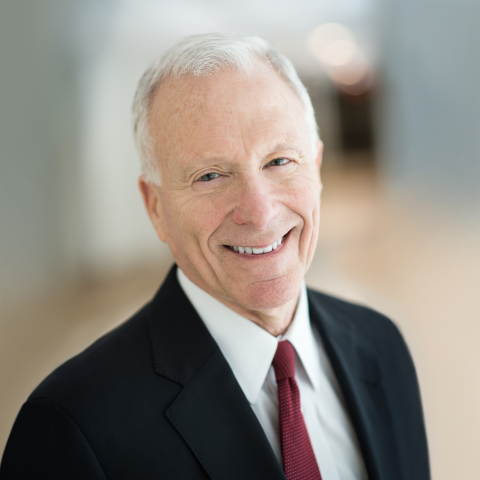Turkish Foreign Minister Ahmet Davutoglu recently visited Diyarbakir, the most important Kurdish city in Turkey's troubled Southeast. As the post-World War I political structure of the Middle East buckles, Kurdish separatist ambitions have become an increasingly important issue, not just for Turkey, but for Syria and Iraq as well.
Mr. Davutoglu's solution to the Kurdish problem is to turn the clock back 100 years, to the time before World War I when the Ottoman Empire held sway. Yet the minister is less likely to see a new era of Turkish-enforced regional stability than something much less pleasing to his taste.
Speaking at Dicle University in Diyarbakir on March 15, Mr. Davutoglu called the past century a "parenthesis": a departure from the authentic political order to which Kurds, Turkey and the Middle East will soon return. His talk, titled "The Great Restoration: Our New Political Understanding from the Very Old to Globalization," was colored deeply by the "neo-Ottomanism" that both he and Turkish Prime Minister Recep Tayyip Erdogan champion.
The departure, Mr. Davutoglu said, began with "the mold that Sykes-Picot drew up for us," referring to the agreement between the British and French governments in 1916 that ended centuries of Ottoman domination of the Middle East. With the Sykes-Picot agreement and the League of Nations mandates, Mr. Davutoglu proclaimed, foreign hands had imposed a political order alien to Middle Eastern traditions, one of "emergent states based on nationalist ideology."
Mr. Davutoglu said this era is finally and happily coming to an end. "We are now in a new era of restoration," he proclaimed. "The real issue is actually rebuilding the mentality that we have lost."
In this view, the unifying force of Islam will heal longstanding domestic and international divides. This, coupled with Sunni Turkey's political, economic and military strength, will lead to Turkey being restored as the natural, dominating leader of the region. A new political understanding, Mr. Davutoglu said in Diyarbakir, will restore the "ancient unity" that connects not only Turks and Kurds, but also "Albanians, Bosnians and Arabs."
The foreign minister correctly underscores three important developments affecting today's Middle East. First, that the Western-inspired, nationalist ideologies adopted in the wake of Sykes-Picot are waning. In the states created as a result of the agreementIraq, Syria, Jordan, and Lebanonnationalist ideologies are giving way to ideologies of Islamist inspiration.
This is also the case in Egypt and Turkey, whose modern forms also date from the end of the First World War. It's true as well, of course, in Iran, which since 1979 has shed Western tutelage for an Islamist ideology, albeit one of a Shiite variety.
Second, that certain political aspects of today's Middle East could come to resemble those from before World War I. Syria, Iraq and Lebanon may eventually shatter into smaller states or quasi-states, resembling provinces and districts of the Ottoman Empire. This will reflect and encourage the more local attachments characteristic of that era.
Third, that the dominant role of outside powers is ending. All Middle Easterners are convincedsome with pleasure, others with regretthat America is a fading force in the Muslim world. The U.S. may yet be invoked to pressure Israelis, but Middle Easterners know of America's economic woes and its leaders' distaste for confronting Muslims.
These three developments won't, however, restore the "ancient unity" that Mr. Davutoglu so romantically invokes. Much more likely is an era of Middle Eastern disunity and disorder.
The unity of the 18th and 19th centuries, such as it was, derived from Ottoman power, both Caliphate and Empire. Contemporary Turkey cannot fill that role. Ankara's frustrations in the Syrian civil war show that.
Worse still, Turkey has a rival in the Islamic Republic of Iran, which is aided at times by Turkey's ancient foe Russia. Prime Minister Erdogan initially sought a virtual alliance with Iran based on common Islamist orientations and distaste for the West. But that proved fanciful. The new Islamist enthusiasm has heightened religious sensibilities, stoking ancient rivalries of Sunnis and Shiites. A profound and violent fault line runs through the region.
Indeed, the Middle East may soon most resemble the ancient "disunity" of the 16th and 17th centuries, when Ottoman Sunnism contended with Iranian Safavid Shiism. That time around, the Ottomans prevailed.
This time, a nuclear Iran may dominate. Today Sunni Islamism is divided into powerful and potentially rivalrous camps. Arab Salafists and their Muslim Brotherhood cousins vie with the Turks for control. And meanwhile, Kurds, so long abused by Ankara, may in two decades outnumber Turks in Turkey. They may have their own state in Iraq sooner than that.
Ironically, order and peace in Mr. Davutoglu's new era may still depend on the restraining hand of outside assistanceand the natural partner remains the U.S. Turks have relearned an ancient lesson recently: that it is unwise to rely on the tender mercies of Russia or the staying power of Europeans. China and India may seek economic advantage, but they have yet to invest in establishing a Middle Eastern order. Both countries, moreover, have their own Muslim problems.
Will America resume a strong Middle East presence willingly? Or will it see itself as forced into the role? To know that, we must ask when Washington's current foreign-policy "parenthesis" will endand whether it will end painfully or well.

















